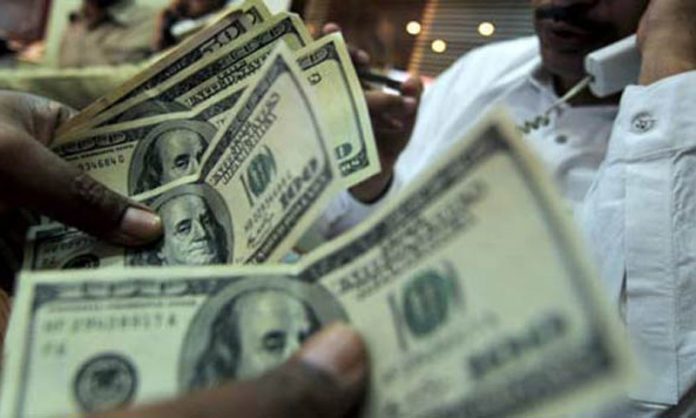KARACHI
The foreign exchange reserves in the country have been under pressure and are down by 8 per cent since June 2017, to $ 14.7 billion with the State Bank of Pakistan (SBP) which covers only 3-months of imports of the country.
The Current Account Deficit (CAD) is likely to stand at $ 16 billion to $ 16.5 billion in 2017-18, up from $ 4.9 billion in 2016 and $ 12.1 billion in 2017. This will likely result in further depletion of FX reserves, which the analyst expects to further fall by $ 3 billion in 2017-18 to $ 13 billion (with State Bank).
The funding gap would be close to $ 10 – $ 11 billion for 2017-18. The sources said the discussions with State Bank, government officials and senior economists are of the view that the government will likely arrange this funding through borrowing.
During the outgoing year 2016-17, the government borrowed around $ 8.5 billion (public and private debt) to fund the country’s external gap.
The analysts estimate that the funding gap of $ 10 – $ 11 billion for 2017-18 will likely be arranged from 1) World Bank/Asian Development Bank that could potentially give up to $ 2 – $ 3 billion, 2) issuance of dollar bonds/Sukuks of $ 1 – $ 2 billion and 3) the balance may be arranged from commercial loans and other sources.
Just like 2016-17, financial support from China and Chinese institutions cannot be ruled out in light of the ongoing China Pakistan Economic Corridor (CPEC) project of over $ 50 billion.
Taking on additional short-term debt is a temporary measure and is not a sustainable situation. The new government, after elections in 2018-19, will need to take strict measures to curtail the trade balance otherwise there will be no option but to seek IMF funding. Such measures will include Rupee devaluation, hike interest rates, duties on non-essential imports, incentives for exporters etc.
The new government will bring financial discipline, Pakistan may not need IMF in 2018-19. Pakistan’s GDP growth will remain around 5 per cent during the next 3 years compared to 5.3 per cent last year. This is because the consumption-fueled growth could be dented to some extent due to devaluation and hike in interest rates by the new government.
As these strict measures will have a negative impact on inflation, the analyst expects interest rates to increase by 50 basis points to 6.25 per cent (policy rate) in 2018 and a cumulative 200 basis points in 2019 and 2020 to 8.25 per cent (policy rate). The government’s effort to bring financial discipline will result in some increase in revenues, while expenses may also be curtailed to some extent. Thus, analysts expect fiscal deficit to decline from 5.8 per cent in 2016-17, to 5.5 per cent in 2017-18 and to around 5 per cent by 2020. The Rupee is to devalue by 6 per cent annually during the next few years.
In light of the economic uncertainty, especially related to Pakistan’s external account and coupled with political noise, due to the ongoing investigation of cases against PML-N leaders, the analysts anticipated Pakistan’s benchmark KSE-100 index to move in the band of 39,000 to 44,000 in the short run.
Investors to focus on stocks/sectors that benefit from Rupee depreciation, are less import-oriented and offer high dividend yields. IPPs, E&Ps, Textile and Banks will be winners in light of continued economic and political uncertainty, the analysts said.
The political noise in the aftermath of the Panamagate verdict, coupled with rising macroeconomic challenges like surging fiscal and CAD, uncertainty over Pak rupee devaluation and pressure on foreign reserves have triggered the PSX-100 index to take a nosedive by 10,566 points to date (-20pc), since hitting its all-time high of 52,876 points on May 24, 2017.
The banking sector, which has an aggregate weighting of 17 per cent in the overall index has lost 21 per cent in market capitalisation over the same period, opening an attractive investment corridor.




